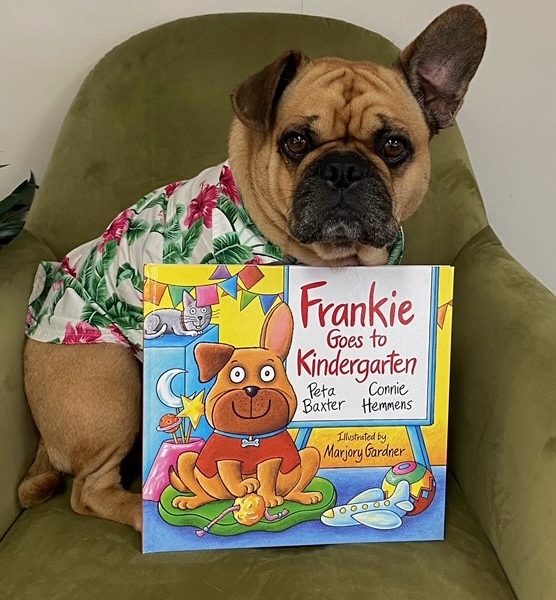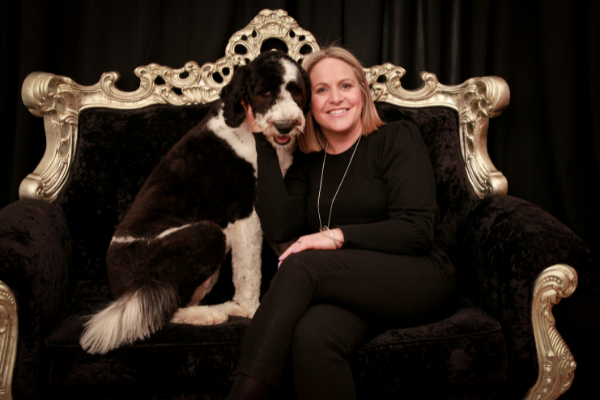Opinion: Pets at children’s services – yes or no?

A ‘pet’, according to dictionary definitions, is a domesticated or tamed animal kept by a human as a companion and cared for affectionately. This definition pretty much sums up why we keep animals as pets in our homes and in children’s services.
However, there is much more to consider in regard to animal welfare before deciding to introduce pets to any environment. Here, Narelle shares some pet stories from her time as a centre director.
When I was directing a long day care service, we engaged in chicken hatching each year. Our children would watch chicks grow, allowing them to explore the concept of a lifecycle. At eight weeks, the chicks were taken to a staff member’s Uncle’s free range farm, where they would live a life of egg-laying.
After a few years, we decided we wanted to extend our hatching program and keep some of the chickens on site permanently. As the centre director, I was concerned about how we would integrate the chicks, house them and look after them during our closure periods. On the other hand, it would be a great learning opportunity for the children. We discussed it at our staff meeting, weighing up the pros and cons. The team voted in favour.
We employed someone to build us a chicken coop in the yard. We had a parent who would come in on the weekend to feed and tend to the chickens, while the educators and children did this during the week. After surveying everyone who visited the service over two weeks, the names were decided – Nugget, Stomper and Jungle Master.
The children got such a thrill from letting the chickens out in the morning and checking to see if we had any eggs. The chickens were free range for most of the day and the children watched and interacted with them inquisitively. You would often hear squeals of laughter as a chicken would join in with a floor painting experience or music time. Sometimes I’d even have chickens visit the office!
One Sunday night, a fox broke into our chicken coop. Our educators spent the following week talking to the children about the loss of our chickens and supporting the many feelings that arose. The service felt a void where our beloved pets used to be but vowed not to get any more until we were sure we could keep them safe.
Later, after observing a similar program at a different service, we wondered if we should have my dog Yoda visit the centre. Yoda, an elderly golden retriever, had been through obedience training and grew up with my three boys. We wanted to ensure the children would benefit from bonding with Yoda and that it was the right thing for Yoda as well. So, we agreed to trial it for four weeks and then reassess.
We did a risk minimisation plan and notified our families. Some families had reservations, as we were located in Brunswick and many children lived in apartments without regular exposure to animals. The first week went well, though one child was very frightened and spent his time up on top of the fort instead of engaging with Yoda.
We spoke with the child’s parents and put a support plan in place. His parents were very supportive of him building a relationship with Yoda and we worked at his pace.
The month trial passed, and it was agreed through consultation that both the children and Yoda were being positively impacted by his visits. After a lot of time and encouragement, our frightened child grew a strong bond with Yoda. His parents were delighted that he was able to interact with Yoda as he had always been petrified of dogs.
After our experience with our chickens, any animal that came through our service door was discussed and agreed upon by all educators. Educators were deemed responsible for looking after animal welfare and supporting positive interactions between the animal, the children and our environment.
Before deciding whether a pet is the right fit for your service, discuss it with your team – use the following reflective questions as a start:
Do we have the funds for food and veterinary care?
What are the animal’s care needs?
Would the children benefit from access to an animal? Why?
What will we do with the animal on the weekend/holidays?
Is the animal interactive? Can the animal become an integrated part of our program?
What training do we need to undertake to support the animal? Does the animal need any training?
How often will we get the animal a health check?
Do we have the correct environment for the animal?
Finally, do some research. Check out this handy ACECQA fact sheet on keeping pets: bit.ly/3d9jmlu
This article first appeared in Roundtable magazine Summer 2022. The full magazine is available to CCC members through the member login on the CCC website
Popular

Workforce
Policy
Quality
Practice
Provider
Research
ECEC must change now, our children can’t wait for another inquiry
2025-07-02 07:47:14
by Fiona Alston

Practice
Provider
Quality
Workforce
Leading with Curiosity: How distributed leadership is redefining the future of early childhood education
2025-07-03 07:42:07
by Contributed Content

Events News
Workforce
Marketplace
Practice
Quality
Provider
Research
An exclusive “Fireside Chat” with ECEC Champion Myra Geddes
2025-07-01 11:25:05
by Fiona Alston













